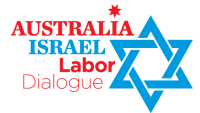I wish to honour the memory of William Cooper both as a member of the Jewish community and a long-time labour movement historian and activist. The dispossession of Australia’s Aboriginal population was little remarked upon by the early labour movement, even if one of the co-founders of The Australian Workers’ Union (AWU), William Guthrie Spence, recognised their prior occupation of the land noting that ‘white man gave no consideration to the black man’s rights’. It is no coincidence that Spence was an active Christian. Yet for a long time the AWU enjoyed a complex often tense relations with Aboriginal workers. Sections sought to organise Aboriginal workers, from 1891 allowing them to join on half-pay and demanding that they be paid at full union rates. Yet they were later excluded from its membership in the rules of the AWU along with most non-whites. By 1910, however Aboriginal people were no longer specifically mentioned as it was assumed that the exclusion of ‘coloured aliens’ did not apply. Significantly, in 1916, the AWU voted to fine any member found working with Aboriginal workers not paid full union rates under the applicable award. Aboriginal workers were not covered by the federal pastoral award, many of whom were paid at half of the award wage and often shunned by AWU members, in contravention of formal policy. Racism meant that large workforces remained unregulated, including Aboriginal children, many of them having been seized by force from their homes and employed as domestic servants.
And few Aboriginals rose through its ranks to become officials. In the interwar period, one indigenous shearer, William Ferguson, became an AWU organiser in the Riverina, Labor activist and fierce advocate for the rights of his people, later founding the Aborigines’ Progressive Association. Earlier William Cooper blazed a trail for indigenous activists in the labour movement. A shearer and general labourer like so many Australians of his era, he joined the AWU, along with his sons, and acted as an organiser for its NSW and Victorian branches. The skills learnt organising workers possibly contributed to the skills he would hone as a superb organiser of his own people. Cooper embodied the egalitarian, humanitarian and internationalist ethos that lies at the heart of the labour movement, even if his non-Aboriginal comrades observed that ethos more in the breach than observance. It was the work of activists such as Cooper that forced the AWU and other unions to change their ways and eventually champion the cause of Aboriginal rights, notably NSW official Charlie Oliver.
I am honoured that trees in Cooper’s memory have been planted in Israel at the Martyrs Forest alongside those planted in memory of my own family members. William Cooper was a mensch in the true sense of the word. In 2017 as the labour movement fights a renewed battle against inequality and discrimination we continue to be inspired by his enduring legacy.
I wish the members of the Cooper family and all involved with commemorating his achievements at this round table and over the coming year all the best. Yasher Koach!

